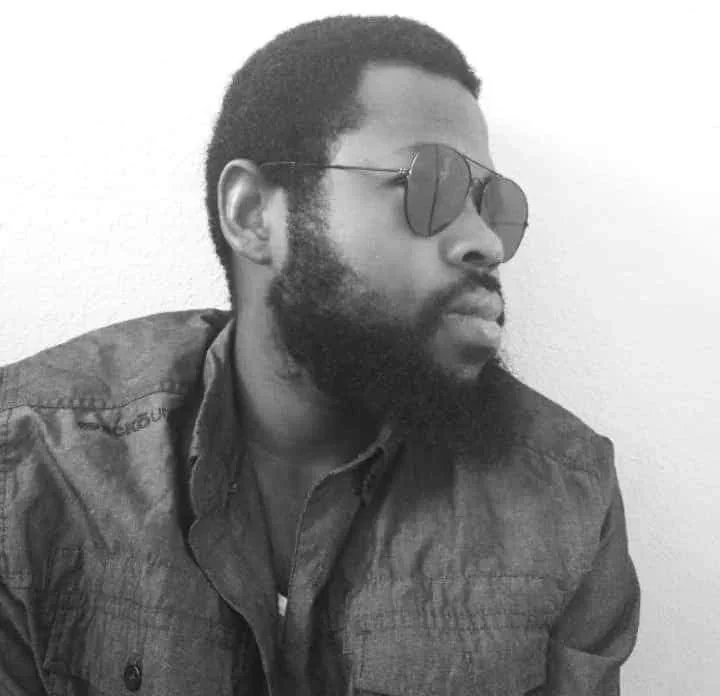Rasaq Malik Gbolahan
Rasaq Malik Gbolahan is a PhD student at the University of Nebraska-Lincoln. He is a Nigerian poet and translator. He is a co-founder of Àtẹ́lẹwọ́, the first digital journal devoted to publishing literary work written in the Yorùbá language. His poems have been published or are forthcoming in journals such as POETRY, Ploughshares, Kenyon Review, Prairie Schooner, The Nation, and elsewhere. He was shortlisted for Brunel International African Poetry Prize in 2017. He was a finalist for Sillerman First Book for African Poets in 2018.
He is the winner of the 2024 Anhinga Prize for Poetry. His book, THE ORIGIN OF WOUNDS, selected by Kaveh Bassiri, and is available now (October 2025)..
THE ORIGIN OF WOUNDS BY RASAQ MALIK GBOLAHAN
$20.00
Winner of the 2024 Anhinga Prize for Poetry, Rasaq Malik Gbolahan’s “The Origin of Wounds” exhumes fragments of historical accounts that bring us face-to-face with the brutality of national and global wars. Malik’s pivotal poems address personal and global grief through the loss of homeland, the loss of beloveds, and the continuous search for a sanctuary. He presents to us diverse ways we can engage moments steeped in unrest and conflict, while weaving poems that honor both the living and dead. In poems that startle and astonish, Rasaq Malik Gbolahan shows unflinchingly the excruciating lives of children in war-torn homelands, while also guiding us through diaries of war notes and archives of forgotten wounds. Through the poems in “The Origin of Wounds,” Rasaq Malik Gbolahan’s remarkable visions as a poet brighten across the pages as he reflects on the past, the present, and the future. Malik reminds us through his poems that we must pay attention to the wounds carried from the past to the present, and we must also do everything possible to save the children from a world fraught with monumental tragedies.
BIOGRAPHY OF HOMELAND (Excerpt)
i.
I begin where the map opens into wounds that open into rooms
where the children wake up each morning uncertain of their safety,
unsure of when the sky will be bright enough for them to see birds
in place of bullets. I begin where the hands of a clock cease,
the hands of war reversing, returning us to the streets of villages
where there are people counting their dead and searching
for their missing beloveds. Some nights, the children ask
their parents about the time the war will stop. But in these
villages there are no clocks without their hands ceased. No one knows
when bullets will stop crowding the air, when bombs
will stop dropping on buildings occupied by children whose dreams
are fragile in this land where no one knows when the hands of war
will stop demolishing the buildings, rendering families homeless,
displaced; pushing them to borders, to places where they will watch
each day end without their beloveds.
Rasaq Malik Gbolahan’s The Origin of Wounds is a haunting dirge for loss, where “natives weigh their dreams / on the scale of war.” Though rooted in Nigeria, the poems resonate globally, from the Middle East and South America to the United States and its mass shootings. Malik is a lucid truthsayer of our time, and his poems are prayers of remembrance, in which “the hand of history / still reaches from the dark room of forgetfulness.” Each line, each poem, stands witness, building a mourning procession that leads the reader toward praise — praise of “the ancestors for carrying us through / the storm of the world.”
— Kaveh Bassiri, Judge for 2024 Anhinga Prize for Poetry
Through a voice both elegiac and liturgical, the poems in Rasaq Malik Gbolahan’s powerful debut, The Origin of Wounds transform burial into sacrament. And weaving a history of slavery, diaspora, impoverishment, and victimization, from the Middle Passage to the current tragic migrant flow through the Mediterranean, the drowned are not forgotten, but are elevated into subjects of sacred lament, their loss archived in “the diary of water.” Sorrow here resounds prophetically and becomes a communal act braided with profound ancestral wisdom. This is a searing and redemptive book that I will return to for its fierce compassion and lyrical devotion. — Khaled Mattawa, author of Fugitive Atlas.
A heartbreaking lyric debut, The Origin of Wounds shows us how to look at the broken world without blinking, while urging us to praise it in its sorrow, as well as in “the fragile arms of hope.” — Danusha Laméris, author of Blade by Blade


